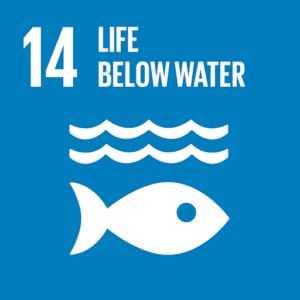

Impact Thesis
Enabling reduction of energy and water use for data centres and contributing towards the net zero agenda
Primary Impact
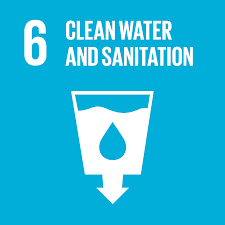
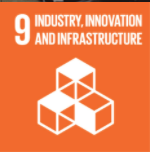
Impact Metrics
96% reduction in water use
40% reduction in power consumption, leading to
40% CO2 emissions reduction per kW of IT Equipment
Creating a Cooler Future for Data
Iceotope contributes towards mitigating the adverse effects of the digital ecosystem on climate change by helping data center owners and operators improve their sustainability and efficiency through reducing energy consumption, water use, and emissions.The company specializes in precision liquid cooling, an innovative method that cools data centers in a more resource-efficient manner – and is especially relevant for regions with tropical climates.
Global Warming and Data
While data centers are critical to our modern and digitized world, they also create a vast environmental footprint. Rapid digitalisation and the ever-increasing use of data have caused a surge in demand for data centers. Today, data centers are growing in numbers, size, and complexity.
The global data center ecosystem consumes up to 320TWh of electricity, accounting for 1% of global energy-related GHG emissions. Cooling systems currently account for ~34% of energy usage in data centers. In places with tropical climates, like Southeast Asia, where conditions for data center operations are far from ideal, energy consumption can reach up to ~55%.
Traditional air-cooling systems remain the most widely adopted cooling technique to date, despite large energy requirements and relative resource inefficiency. The other significant factor that contributes to the environmental footprint of data centers is water usage. A recent study posits that a small 1 MW data center using air-cooling can consume around 25.5 million liters of water per year.
With data center operations becoming more complex, servers with higher power densities are required. However, current air-cooling systems might not be able to keep up with progressively heavier processing loads, or even remain cost-effective, considering the rising energy costs.
Investing in a Cooler Future
Using superior principles of liquid cooling, Iceotope has developed a patented technology that combines the performance benefits of liquid cooling with the added benefits of environmental savings in data centers.
Liquid cooling is exponentially more effective than air-cooling at conducting heat away from the servers. Given the expected advancement in computational capacities and increase in chip densities, Iceotope’s solution enables data centers to operate at a higher power level while reducing the risk of overheating.
As a more efficient cooling method, Iceotope’s solution curbs water usage and consumes lesser resources for the same level of cooling. Deploying the company’s patented liquid cooling technology in place of traditional systems offers up to 96% reduction in water use, up to 40% reduction in power consumption, and up to 40% carbon emissions reduction per kW of IT equipment.
Bridging the Gap for Asia
Even as Southeast Asia experiences rapid digital growth, the region is also very vulnerable to climate change and weather extremes. The impetus to develop greener and more sustainable data center infrastructure is thus even greater.
Our partnership with Iceotope extends our objective to bring in and scale relevant global tech solutions in Asia, so that we can contribute to the region’s advancement and growth, alongside the transition to a low-carbon economy.
Already, the company has started to make in- roads by engaging with key players in the data center industry within the region. Iceotope is collaborating with Singapore-based ST Telemedia Global Data Centres (STT GDC), one of the fastest growing data center operators worldwide. The two have jointly conducted a proof-of-concept (POC) to explore the potential and applicability of Iceotope’s emerging technology across STT GDC facilities to improve sustainability and future-proof operations.Iceotope’s technology is also being piloted by other companies with high data center requirements Meta has affirmed that Iceotope’s precision liquid cooling is an efficient means of cooling high-density storage drive racks.
These ventures reinforce ABC Impact’s abilities to introduce Iceotope to Asia’s emerging markets, supporting the advancement of the region by helping them to leapfrog to sustainable, low- carbon solutions.
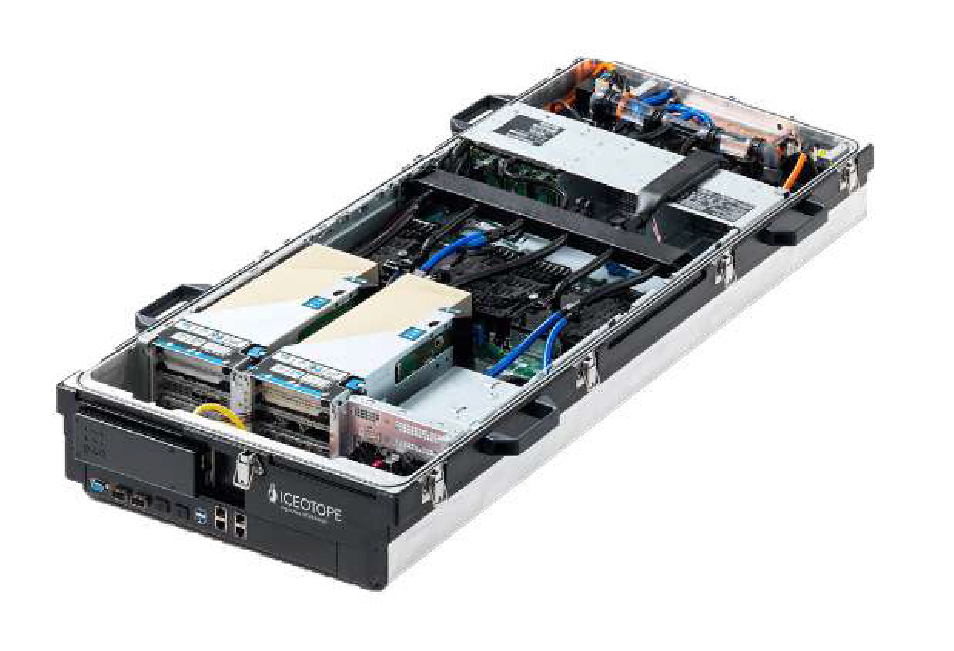

Impact Thesis
Alleviating feed production-driven climate change by reducing pressure on natural ecosystems
Primary Impact
Secondary Impact
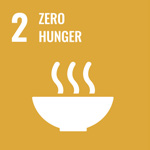
Impact Metrics
427 metric tonnes of CO2 emissions avoided
744 metric tonnes of fishing avoided
Reducing Feed Production’s Pressure on the Environment
As the world’s population moves toward 10 billion with a burgeoning middle class, protein consumption is projected to increase exponentially. As one of the most efficient protein sources, fish account for 17% of global animal protein consumption. Fish consumption is also the fastest growing of all animal protein, and demand for seafood is projected to double from 80 million tonnes in 2015 to almost 155 million tonnes in 2050.
Already faced with multiple challenges such as shrinking yields, resource inefficiency, and a high environmental footprint, the global agri-food industry is struggling to keep up with the demand surge.
Global food production accounts for 14.5% of greenhouse gas emissions, with 45% of that attributable solely to feed production. Aquaculture has been acknowledged as a sustainable solution to fill the feed supply gap and the sector is sharply increasing production to help meet rising consumer demand. However, the sector still heavily relies on wild caught fish to supply fish meal and fish oil - the main ingredient of aquafeed.
This growing demand for aquafeed and fishmeal production inadvertently adds pressure to the already strained marine ecosystems, to the further detriment of food security and biodiversity. ABC Impact’s partnership with Innovafeed seeks a viable, long-term solution to this global issue.
The Buzz About Substitutes
Innovafeed improves the sustainability of aquaculture production systems by eliminating the heavy dependency on fishmeal for aquafeed. With the black soldier fly (BSF), the company has developed an innovative, sustainable, and scalable production system that addresses the pain points of feed production. BSFs are gaining recognition as an alternative protein source for animal feed, and are able to substitute fishmeal at scale.
The twin advantages of BSFs as a suitable substitute are its high potential for large-scale breeding, as opposed to other viable insect species, and the added advantage of addressing the larger issue of agricultural waste. Being efficient converters of protein, BSFs transform low-grade wet waste into high quality protein effectively, thus minimizing the overall waste footprint of the food and agri industries.
Beyond this promising solution, Innovafeed has designed an innovative model of production which amplifies its positive impact. Through industrial symbiosis, the company operates a closed loop production model that incorporates circular and vertical farming principles to minimize waste and lower emissions along the entire value chain.
Innovafeed has achieved this by co-locating with large agro-industrial players who supply feedstock and waste energy inputs directly to its production plants. These companies directly pipe feedstock into Innovafeed production plants and eliminate the energy otherwise required to dry and transport feedstock.
Energy requirements are further met by partnering biomass generation plants that provide a sustainable supply of biomass and recycled waste energy through cutting-edge engineering. It is this partnership with major players in the supply chain that has allowed significant reductions in Innovafeed’s energy and logistic costs, as well as its environmental footprint – reducing as much as 53% of emissions when compared to traditional fish meal production.
“Given the complex production and environmental challenges in the sector, our food value chains need to transition towards more resilient practices and adopt disruptive solutions. Innovafeed addresses the issues of productivity, resource efficiency, and emissions through innovation and technology,”
– Yeo Zuo Yi, Vice President, Investments
Embodying Impact
Energy requirements are further met by partnering biomass generation plants that provide a sustainable supply of biomass and recycled waste energy through cutting-edge engineering. It is this partnership with major players in the supply chain that has allowed significant reductions in Innovafeed’s energy and logistic costs, as well as its environmental footprint – reducing as much as 53% of emissions when compared to traditional fish meal production.
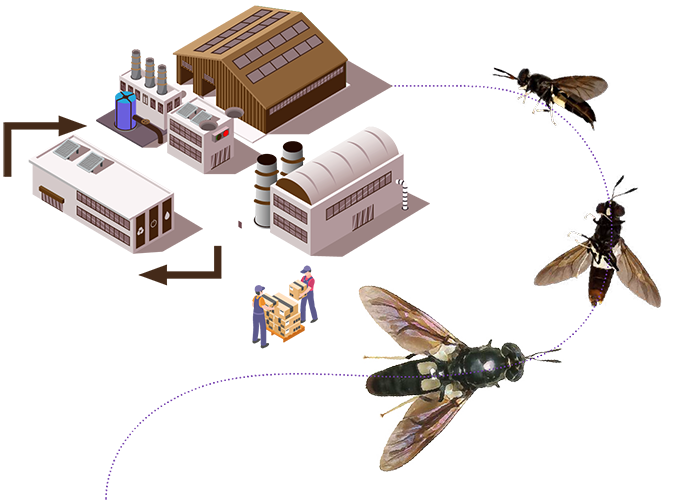

Impact Thesis
Increasing access to oral healthcare services and prevention efforts in Vietnam to reduce the risks of oral and non-communicable diseases
Primary Impact
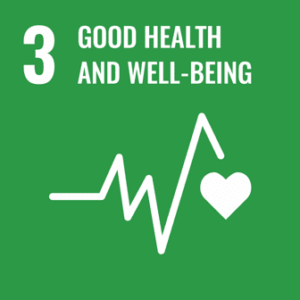
Impact Metrics
201,810 patients received treatment
290,869 procedures were provided, of which 93% of procedures provided were non-cosmetic, relating to general oral health and pain restoration.
33 dentists receive training every month, on average
60% of dental professionals employed are female
Bringing More Smiles to Communities Through Accessible Oral Healthcare
The World Health Organisation’s Global Oral Health Status Report (2022) estimated that oral diseases are the most prevalent yet avoidable non-communicable diseases (NCDs) globally, affecting nearly 3.5 billion people worldwide. In Vietnam, it is estimated 90% of the general population suffer from oral diseases, with 85% of children experiencing tooth decay.
ABC Impact’s investment in Kim Dental is helping to reduce the risks of NCDs and deliver improved health outcomes for Vietnam’s population, through increased access to oral healthcare services and prevention efforts.
Established in 2016, Kim Dental is changing the way oral and dental healthcare is delivered across the country. The company aims to drive access and awareness at scale for communities that require quality oral healthcare, from basic preventive screenings to more advanced treatments for complicated oral diseases. With best-in- class training for their oral health professionals, a growing network of clinics across the country, and innovations such as a dental bus that traverses through communities, the team at Kim Dental is working to deliver affordable and quality oral health services to Vietnam’s growing population.
Scaling Innovation to Engage Vietnam’s Underserved
Our investment has supported Kim Dental to develop novel and innovative outreach initiatives to expand access to underserved communities. Motivated to help create a better quality of life with improved and more accessible oral care, Kim Dental’s practitioners regularly embark on outreach programmes in rural areas to render essential basic dental services. In addition, these outreach efforts also encompass proper oral hygiene education to raise awareness of the importance of regular dental care.
A customized dental bus forms part of the outreach, fitted with state-of-the-art dental equipment—such as a digital intraoral scanner, dental chairs and other necessary tools—to offer mobile services to rural underserved communities. Kim Dental’s initiative provides populations on the outskirts of care the chance to receive quality restorative and preventative treatment on a more routine basis. The bus makes its rounds to more remote neighborhoods on a regular schedule, with local schools and organizations joining hands with Kim Dental to help share information and education on the initiative.
Kim Dental is also addressing the issue of poor dental health among workers in Vietnam’s industrial sectors. Without the luxury of time and ease of access to dentists and dental clinics, factory workers are typically unable to go for regular checkups and treatment unless they take time off work. Kim Dental has launched an initiative to bring their dental practice directly to the factory floor — on-site dental services offered at no cost to factory workers. For many employees, these on-site amenities provide them with their first opportunity to visit a dental health professional. Through this initiative, many are undergoing routine cleanings, exams, and other preventative care for the first time. Kim Dental also provides emergency services and treatment for any urgent dental needs that may arise.
Improving Environmental, Social and Governance (ESG) standards at Kim Dental
ABC Impact’s partnership also encourages and strengthens the company’s organizational resilience.
In 2022, ABC Impact supported the implementation of an ESG improvement program, which focused on enhancing the corporate governance processes and operations at Kim Dental. Through our technical and financial assistance, Kim Dental has formalized many of its internal processes and policies, institutionalized existing initiatives, and established formal roles to provide consistent oversight of the Environmental, Social and Governance aspects of the business. By doing so, the company can be well-positioned in the face of unexpected risks and challenges, while ensuring that as Kim Dental grows and expands, it does so sustainably and responsibly.
“We believe that the dental sector in Vietnam is exciting and promising, and provides a unique opportunity to create positive social change. We are proud of our deep partnership with a mission-driven company like Kim Dental, who can help us achieve our impact objectives for the country’s populations and health systems.”
– May Lo, Director, Investments


Impact Thesis
Strengthening quality and access to health services for patients, while easing the burden on health systems
Primary Impact

Impact Metrics
1,843,704 patients reached
10,406 patients received long-term care and caregiver services
750,032 patients received chronic disease screening, diagnostics and management services
21,459 patients provided access to pharma through delivery services
875 employees recruited and trained
Amplifying Access to Quality Health Services Across India
ABC Impact’s investment in HCAH has helped the company expand its integrated network of out-of-hospital services across the continuum of care in India and contributed toward its goal to make quality healthcare more available and equitable for the country’s population.
Through a suite of personalized, specialized, and affordable solutions, HCAH has demonstrated that out-of-hospital services can effectively reduce barriers to accessing clinical care while increasing efficiencies for constrained health systems.
Adapting to the Shift in India’s Healthcare System
The health status of a population is inextricably and inherently linked to the quality of health systems. The robustness and accessibility of health services are therefore crucial to ensuring the well-being of a country’s people and productivity of its economy. Historically, healthcare in India has been largely hospital-centric and anchored in curative care.
The focus has been on reducing mortality and morbidity caused by various communicable and non-communicable diseases. In recent years, this paradigm has shifted from managing acute and episodic events to caring for the entire lifecycle of the individual.
This emerging model, which prioritizes preventive care and overall quality of life, has put further pressure on India’s health infrastructure. It highlights limitations and gaps in the current system, such as strained hospital resources, fragmented recovery and rehabilitative post-discharge services, and inadequate providers for chronic care.
With the widespread demand for comprehensive healthcare, an escalating chronic disease burden, and population aging, HCAH has seized the opportunity to improve the availability and affordability of essential services that can be delivered outside tertiary hospitals.
Transforming Care for Meaningful Productivity and Emphasizing Quality of Life
In 2022, HCAH expanded its physical facilities and digital platforms. To fulfill its aim of ‘providing a lifetime of care across a continuum’, the company strategically acquired SuVitas, a leading provider of in-patient transition care facilities. With these additions to its suite of out-of-hospital care solutions, the company seeks to drive better patient recovery, improved productivity, and overall well-being for the underserved demographics in India.
Over the course of the year, Suvitas launched two transition care facilities to increase its total count to five, with ambitions to scale services across specialties and expand geographically across India. The transition care centers offer in-patient rehabilitative services to patients, bridging the healthcare continuum gap between tertiary hospitals and homes by providing more cost-effective clinical treatment for those who require complex supervision and long-term care.
The centers allow patients to recover in an infection-free and monitored environment under skilled nursing teams and continuous medical supervision. Patients avail pain relief and restorative care services to regain, maintain, or improve everyday living abilities, enabling their recovery journey back to productivity and a higher standard of wellness for the rest of their lives.
As the role of the patient evolves from a passive recipient to that of an informed seeker of care, recent trends are paralleled in the current generations of elders, who now have expectations of improved access to care and better quality of life at advanced ages. In the same year, HCAH acquired Seniority, India’s largest geriatric-focused digital platform to cater to an influx of demand from the country’s rapidly expanding aging population. HCAH plans to incorporate the business with its current caregiver services to establish a geriatric-focused vertical. The company aspires to provide end-to-end senior care services to empower patients, holistically enhance their well-being, and improve their quality of life.
With these growth initiatives and ABC Impact’s support, HCAH is establishing itself as a one-stop solution offering a full suite of aggregated services with vetted quality and clinical assurances. The widespread positive impact HCAH delivers aligns closely with our key investment theme of ensuring better healthcare for all.


Impact Thesis
Improving the productivity and livelihood of smallholder farmers and driving greater efficiency in agri supply-chains
Primary Impact
Secondary Impact
Impact Metrics
7.76 M farmers benefited globally, of which
3.46 M are smallholder farmers
3.31 M farmers leveraging advisory for better farming practices
12.7 M acres of farms digitised
Shifting Agriculture Towards a Sustainable Future
With the world’s population projected to increase by 10 billion in 2050, there is further pressure on land to increase food production. To keep pace with the projected growth, the agri sector needs to increase food production by 60%. However, traditional methods are not enough to handle this huge demand, and with the added threat of climate change, it is imperative for farmers and agri companies to find newer ways to increase productivity and reduce food waste.
Productive and resilient livelihoods, thriving rural communities, and equitable value distribution, are core tenets of a sustainable food system. However, farmers often face challenges related to limited access to capital pre- season, quality inputs, agronomic information in-season, and markets post-harvest.
Technology has redefined farming over the years and digital advances have affected the agriculture industry in multiple ways. The rapid evolution of artificial intelligence (AI) technology offers a new approach for making agricultural practices more efficient, equitable, and less damaging to the environment. Cropin is harnessing such advancements to help the agriculture sector become more inclusive and sustainable.
Making Agriculture Connected, Smart and Data-driven
Since its inception, Cropin has been guided by its mission to digitize the agriculture industry and improve the efficiency, productivity, predictability, and sustainability of crop value-chains for agri-businesses.
Using geo-tagging, analytics, and data science tools, Cropin’s solutions provide field management consultation and technical assistance on agricultural data to farmers, agri businesses, NGOs, and government bodies to help increase crop yields, income and livelihoods.
Cropin is taking a farmer-centric approach to provide economic, practical and ecological benefits to the farmers at scale. Its future-fit solutions empower farmers associated with the agri businesses to utilize real-time data for better decision-making and productivity. Alongside ABC Impact’s investment, the company has also earned support from Google for its vision to cater to the growing demand for digitisation and predictive intelligence in the global agriculture sector, further validating Cropin’s capabilities and position as a pioneer in the digitalisation of global agriculture.
Cropin is determined to advance technology adoption to solve real-world agricultural problems and benefit every stakeholder in the food value chain.
Agriculture Management in the Cloud
In 2022, Cropin launched its new Cropin Cloud solution, a purpose-built industry cloud for the agriculture sector. The platform is a multi-tenant, scalable, flexible, intelligent cloud platform – it enables agri-businesses, development agencies, governments, and allied industries to accelerate digital transformation across their business value chain.
Cropin Cloud allows enterprises and other stakeholders in the food value chain to access tools for earth observation and remote sensing, along with data and machine-learning to help them better manage crops and harvests. The technology also contributes to increasing climate resilience of crop supply through advisories on climate and adaptive farming practice, informed by its data intelligence and predictive analysis approach.
The Cropin cloud has three sub-platforms:
- Cropin Apps, which covers a wide range of uses cases: global farming operations management, food safety measures, supply chain visibility, predictability and risk management, tracing food from the farm to table, research and development and production management.
- Cropin Data Hub, which gathers data from different sources for analysis, including on-field farm management apps, IoT devices, drones, remote sensing satellites and weather report.
- Cropin Intelligence, which uses the company’s contextual deep-learning and AI models to help agribusinesses with data points like crop detection, crop stage identification, yield estimates, irrigation scheduling, pest and disease prediction, nitrogen uptake and harvest date estimation.
With these advancements in its technology, Cropin moves closer towards its objectives to empower farmers with better data and better farm resilience. As the company continues to innovate and refine its products, it is also further strengthening its contributions towards improving the overall productivity and sustainability of crop value-chains for the wider agri sector.
* Calculated by adding the reported number of farmers at end of December 2021 and December 2022


Impact Thesis
Providing access to safe and affordable financial solutions to boost economic growth while promoting rural development in China
Primary Impact
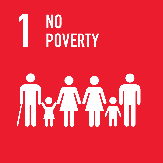
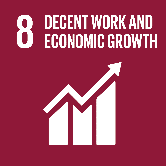
Secondary Impact
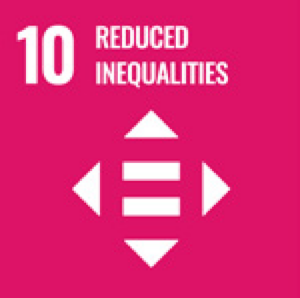
Impact Metrics
USD 6.60 B disbursed in loans to 915k borrowers
2.04 M loans disbursed since investment
70.1% of active clients are female (including primary and co-borrowers)
1.87 M insurance policies provided, protecting 1.72 M people
Contributing to Rural Revitalisation for Economic Progress
Chongho Bridge brings underbanked and rural populations in rural China into the formal financial system, which will enable previously excluded individuals and enterprises to access economic products and improve livelihoods. Since partnering with ABC Impact, Chongho Bridge has expanded its suite of economical services for rural clients to further contribute to the strong momentum of rural development and economic revitalisation in China.
Progress Towards Financial Inclusion
Micro, small, and medium enterprises (MSMEs), as well as lower-income households in China, often face financing difficulties in the form of challenging collateral requirements and high transaction costs. As their financing demands require high frequency, smaller credit amounts, and urgent disbursement, this underserved segment has historically faced significant systemic hurdles in accessing credit from the formal sector.
With MSMEs accounting for up to 97% of registered businesses and 82% of employment in China, it is critical that these businesses receive adequate financial support as they drive regional economic development and growth. In recent years, the advancement of microfinance services in China has enabled improved access to loans for these individuals and enterprises, particularly in rural and low-income groups.
Since its beginnings as a non-profit institution, Chongho Bridge has substantially aided China’s overarching financial inclusion agenda. By addressing the demand for financial services in underserved regions with safe and affordable financial products, Chongho Bridge is furthering financial inclusion in the country. Its uncollateralized loans help small farmer households, as well as micro and small entrepreneurs overcome their credit constraints, invest in their livelihoods, achieve financial resilience, and ultimately better their standards of living.
Chongho Bridge also harnesses technology in the form of an integrated digital platform to offer a comprehensive suite of rural services that complement its range of credit products. Tailored to the specific needs of remote clients, Chongho Bridge generates impact beyond financial services by enabling them to procure better and more affordable agri materials and equipment, purchase insurance, and expand access to new markets.With Chongho Bridge, clients become equitably equipped to sustain their businesses, families, and increase resilience to endure crises.
Anchoring Impact in Evidence
Despite the promising development of financial inclusion in China, its impact remains relatively undocumented. Research has focused on measuring access, awareness, and utilization of financial services, but significant data gaps still remain to corroborate the effectiveness of these credit models and validate the socio-economic benefits hypothesized for its stakeholders in the country.
With support and funding from ABC Impact and the Centre for Impact Investing and Practices (CIIP), Chongho Bridge has taken the extra step to bridge this evidence gap. Recognising that impact takes time to be achieved, Chongho Bridge has pre-emptively implemented a phased study to better understand both the short-term outcomes and subsequent long-term benefits of their solutions on their clients.
In 2021, in conjunction with Nanjing Agricultural University, the company designed and piloted a welfare performance monitoring and evaluation system that utilizes randomized field experiments and scientific survey techniques. The performance evaluation project measures across key comparable social and economic indicators between Chongho Bridge’s loan clients and a control group.
In 2022, Chongho Bridge completed its first round of follow-up monitoring for the programme. From a survey of 3,601 borrowers, findings have positively affirmed several outcomes posited for Chongho Bridge’s microcredit solutions. Despite the adverse effects and restrictions of the pandemic over the year, the survey has demonstrated that in the short-term, Chongho Bridge’s microloans have:
- Enabled improvements in incomes of rural MSMEs
- Enabled increase in borrowers’ spending on household daily necessities
- Helped low-income borrowers increase resilience to withstand negative financial shocks
- Improved borrowers’ access to formal credit
In addition to validating positive outcomes, the survey has also helped ABC Impact ascertain that the company's credit underwriting and customer protection processes were mitigating the risk of over-indebtedness for their customers.
Moving forward, Chongho Bridge aims to institutionalize the monitoring system for continuous evaluations, and to build a database grounded in their borrowers’ experiences. ABC Impact is proud to partner with the motivated company, and take confidence in their pursuit of meaningful and authentic change.
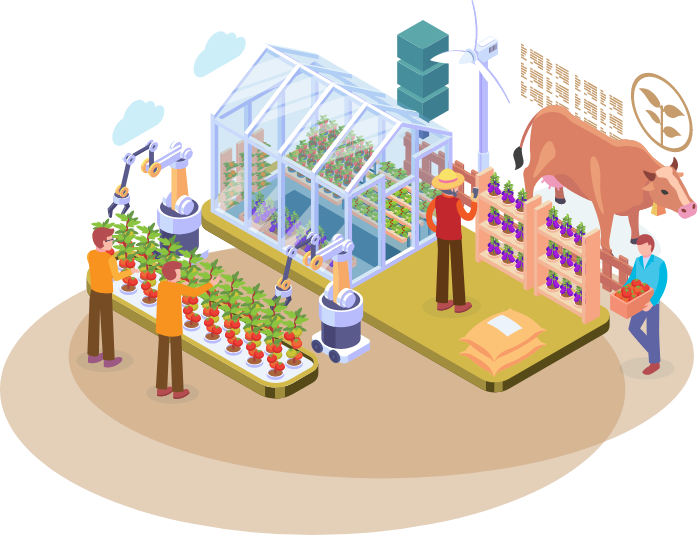

Impact Thesis
Accelerating consumers’ transition to a more plant-rich diet and reducing GHG emissions, water use and land use
Primary Impact

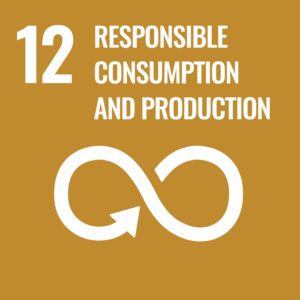
Secondary Impact
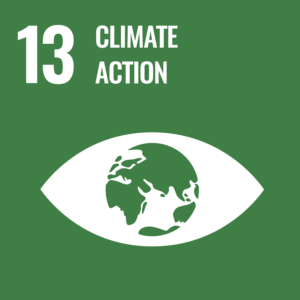
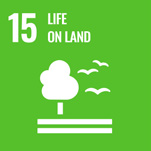
Impact Metrics
69,717 metric tonnes of CO2 emissions avoided
42.6 B litres of water saved*
Centering the Future of Protein Back on Plants
ABC Impact portfolio company v2food is driven by the belief that plant-based alternative protein can be the future of meat consumption for an ever-increasing population.
Founded in partnership with CSIRO, Australia’s national science agency, the company has harnessed the ability to produce sustainable, plant-based meat alternatives at accessible price points for the masses.
By using protein extracted from legumes to create plant-based meat and encouraging more people to consume less animal-based meat, the Australia-based company is helping to pave the way in how the everyday diet can benefit from a more environmentally-friendly, but no less affordable, approach.
Plant, Protein, Planet
The company’s name is derived from a simple philosophy: “We’re creating a version 2 of meat. Because we don’t have version 2 of Earth”.
The adoption of plant-based protein is precipitated by the concern over the current state of animal- based meat consumption, which relies on livestock rearing methods that have resulted in negative consequences on the planet.
With a sense of urgency, v2food is taking the bold but necessary steps to validate and quantify the environmental savings that their plant-based products are driving. Through a rigorous life cycle assessment (LCA), v2food had corroborated ABC Impact’s thesis on the benefits of their plant- based alternatives, ensuring its resource- efficiency and low carbon footprint. More specifically, the LCA has confirmed that the company’s products emit 91.9% less carbon and use 99% less water than their animal-based counterparts.
With their evidence-based study, v2food has strengthened assurance and transparency around their sustainability efforts, with customers, investors and other stakeholders.
A Sustainable Business for a Sustainable Planet
Since its establishment in 2019, environmental and social impact considerations have been embedded in v2 foods mission: to bring food solutions that reduce the environmental footprint that comes from meat consumption and contribute to a more sustainable food industry.
Through our investment in the company, ABC Impact has also provided technical assistance and support to v2food to meet the highest social and environmental standards in their operations. As of December 2022, v2food has officially become a B Corporation after completing the B Impact Assessment (BIA). With this achievement, they have joined the fold of over 6,400 companies globally – all of whom take people, environment, and profit into equal consideration when making business decisions.
The BIA was developed by B Lab and benchmarks the Environmental, Social, and Governance (ESG) performance of a company’s performance. The B CorpTM Certification is a rigorous and comprehensive assessment process based on five pillars of impact: Environment, Customers, Workers, Governance and Community. The B CorpTM certification underscores that sustainable impact is at the core of v2food’s business model.
A sustainable business model can never thrive without its ethos. After its certification, v2food has doubled down on its commitment to delivering purpose beyond profit, taking into account the social and environmental impact of its initiatives in decision making.
To cement its commitment, the company has updated its articles of association to reflect this goal, which acknowledges both the current state of the world and the path to a more sustainable and environmentally-friendly future.


Impact Thesis
Improving access to quality supplementary education to drive better educational outcomes
Primary Impact
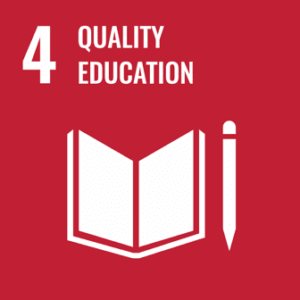
Secondary Impact

Impact Metrics
7.78 M students accessed quality education content digitally
55% students from outside Tier 1 cities
1.5 years of learning growth per student in grade 4-10 in one academic year*
Paving The Way for Access to Quality Education in India
In the face of increasing constraints in India’s education sector, ABC Impact’s partnership with Vedantu aims to improve equity of access to education, teaching quality, and learning environments for better learning outcomes.
Since its inception in 2014, the ed-tech platform has been providing online tutoring to students for STEM subjects and languages like English and Hindi. Vedantu leverages technology to offer live interactive classes and pre-recorded video lessons to school students across K-12 grades, as well as test preparation classes for competitive medical and engineering school entrance examinations.
Its tutors are trained to provide personalized learning to suit the needs of students and their parents, with an emphasis on thorough academic revisions and lessons aligned with school curricula.
Advocating Outcomes-based Assessments for Optimised Learning
Longstanding challenges in India’s education system have perpetuated widespread sub-optimal educational outcomes for its students. Furthermore, mandatory school closures during the country’s COVID-19 lockdown have exacerbated learning losses and social gaps in academic outcomes for students. The World Bank recently postulated that closures of seven months can result in students losing
almost a year of learning adjusted years of schooling, with such effects being more pronounced for students from lower income backgrounds.
As enabling better educational outcomes are pivotal to their mission, Vedantu has anchored their pedagogy in a data-driven, science-based approach, measuring their students’ learning progress to ensure definitive results.
Vedantu’s evaluation framework encompasses Learning Progress Tests (LPTs), competency-based assessments carried out thrice in the year for consistent monitoring of students’ educational growth and abilities. Based on item-response theory (IRT) models recognised to be the gold standard of measurement, LPTs provide a comprehensive evaluation of students’ academic strengths and gaps. Ultimately, the framework is purported to equip the company with valuable insights to design relevant curricula, benchmarks and targets catered to the individual to optimize their learning progression. Vedantu are taking the necessary steps to drive better efficacy and maximize their students’ learning potential.
The New Model: A Hybrid Approach to Education Access
The COVID-19 pandemic has highlighted a growing digital divide in India – exposing large inequalities in access to technology. To address this inequality, Vedantu has adopted a balanced delivery solution to bring students back to physical classrooms while optimizing technological tools to accelerate learning processes. By shifting weightage from its previous digital-focused delivery to a more balanced and holistic approach, Vedantu is building future-proof hybrid learning models and democratizing access to quality education for many students in India.
In 2022, the company piloted an educational center for competitive exam preparation in a Tier-3 city in the state of Bihar, India, where they have blended physical and digital (“phygital”) educational services together—a combination of in-person and virtual tutoring for effective delivery of lessons.
“We are guided by the vision of making access to quality teachers and pedagogy equitable across India. However, for smaller towns and cities where digital infrastructure to support online education is inadequate and connectivity is difficult, we had to reimagine our delivery model.”
– Vamsi Krishna, Vedantu CEO and Co-Founder.
To scale this model further, Vedantu acquired Deeksha in October 2022, an education chain that operates physical centers to prepare students for competitive examinations. The partnership would synergise Vedantu’s unique strength in online learning innovation with Deeksha’s massive offline footprint with the goal to digitize classrooms in cities where quality education is not accessible.
Students in these cities benefit from Vedantu’s phygital centers - where students come to the center, to engage with teachers through streaming and personalized learning technologies. These centers enable students to still access to quality infrastructure, teachers, and pedagogy.
Footnote:
*Measured in terms of Equivalent Years of Schooling (EYOS) based on a sample assessment of students with more than 75% attendance
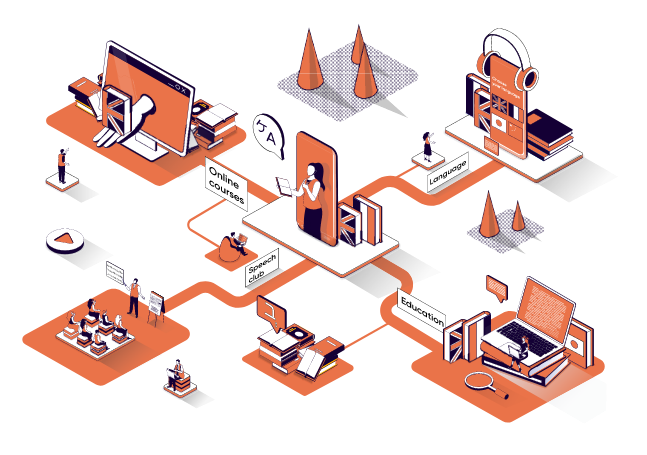

Impact Thesis
Enabling children with autism spectrum disorder (ASD) to receive required early childhood care, leading to improved outcomes for the children and better well-being for the entire family
Primary Impact

Secondary Impact

Impact Metrics
31,747 stakeholders provided access to autism therapy services
1,257 therapists employed and trained to deliver therapy services
95% of children have improved social skills with DaMi & XiaoMi
Transforming the Quality of Life for Children with Autism in China
DaMi & XiaoMi provides therapy services in China for young children diagnosed with autism spectrum disorder (ASD). Its mission to improve access and quality of ASD therapy solutions aligns with ABC Impact’s objective to enhance learning and developmental outcomes for children, along with elevating the quality of life for their families.
ASD in China – A Long Way to Go
ASD is an early onset neurodevelopmental condition characterised by persistent social communication and behavioural interaction impairments. It currently affects over 10 million people in China, with an estimated two million being children.
These numbers are estimated to increase by about 200,000 annually. Classified as a spectrum disorder, ASD affects each individual differently– varying in their strengths, challenges and needs. Presently in China, there are structural challenges throughout the entire process to address the condition - from consultation to diagnosis to treatment and follow-up.
Early addressal of ASD is key for optimal development of the child, which can result in substantial improvement of future opportunities and enhanced social inclusion. However, limited attention and resources have been allocated to address the condition in China. Despite ASD being diagnosable from the early age of 2 and interventions initiable from ages 2-3, the average age of diagnosis in China is about 4.5 years.
This indicates that many children with ASD miss the prime window of diagnostic intervention.
Additionally, available therapy options for children with ASD are insufficient often because of weaker localised programmes that hinder efficacy, or difficulty in access for parents and caregivers. China also faces a marked undersupply of therapists. About 9,000 therapists are needed in the country by 2026 to cater to the rising demand for treatment.
All these factors contribute to long-term difficulties for individuals with ASD. They often face limited opportunities in the education system. Furthermore, their parents and caregivers also frequently experience stress and isolation due to the social stigma attached to the condition. With 50% of parents suffering from anxiety, and up to 60% suffering from depression, due to the stress of caring for children with autism, it has resulted in a deep gap in the level of support for ASD patients and caregivers in China.
A Timely Intervention
To better serve the needs of the market, DaMi & XiaoMi has developed proprietary intervention techniques that adopt the globally recognised Applied Behaviour Analysis (ABA) methodology. Its in-house therapy system, ‘RICE’, integrates ABA-based techniques with localised content tailored to users, which makes for more effective treatment as compared to imported therapy techniques.
DaMi & XiaoMi offers two main forms of therapy: in-person behavioural therapy for children with ASD, as well as intensive training for parents and caregivers to manage their children’s special needs at home. This structured system offers behavioural, speech and occupational therapy, focusing on social skills development among children diagnosed with ASD to significantly improve their condition and increase the chances of reintegration into mainstream schools. Emotional and technical support is also provided to help them alleviate potential feelings of stress and isolation as caregivers, improving the overall well-being of families.
Since ABC’s investment, DaMi & XiaoMi has expanded its presence in key regions across China where the supply of ASD therapy is largely underpenetrated. It currently has therapy centers in 33 locations across major cities, making them one of the largest providers of early intervention services for ASD across the country. The company has also introduced new services such as one-to-many classes and an expanded online syllabus that will amplify and extend intervention therapy benefits to more children and families across the country, all at relatively accessible price points.
ABC Impact’s investment pushes forward the Shenzhen-based company’s capabilities to enable children with ASD to receive timely help, while also promoting awareness for child autism care and the importance of training, timely intervention and therapy.
Meet the Founder: Jiang Ying Shuang
A former senior journalist, Jiang Ying Shuang was inspired to start DaMi & XiaoMi after her personal experience with the underserved ASD sector in China. During an incident where her daughter was misdiagnosed with ASD, a desperate Ying Shuang found that the system offered inadequate options for formal treatment, and those available were expensive and difficult to access. This spurred her to set up DaMi & XiaoMi to provide a solution that increases the access, awareness, and availability of ASD therapy for communities across China coping with the condition.
DaMi & XiaoMi initially started as a WeChat support group for parents or caregivers of children with ASD. As a mother, Ying Shuang deeply empathizes with the community and through the business, continually seeks to contribute professional solutions that can lead to improved outcomes for the children, alleviate stress of caregivers, and prioritize well-being for the entire family.
“Perhaps the most apt description of the ASD journey would be ‘lifelong challenge’ – not only in terms of the financial burden to the family but also because the level of education and quality of medical treatment for autistic children is often inadequate. The strong support and encouragement we received from parents after setting up DaMi & XiaoMi reinforces our dedication to this mission.”
– Jiang Ying Shuang, DaMi & XiaoMi CEO and Founder

